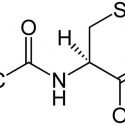How Meditation and Nutrition can Help with Addiction
“What you get by achieving your goals is not as important as what you become by achieving your goals.”
– Zig Ziglar, U.S. author, and motivational speaker
At around age 4, I’m pretty sure something akin to meditation was only achieved through sitting in front of the TV and becoming transfixed by my favorite cartoon of the day.
Likewise, I’m pretty sure that good nutrition was left to my Mom to sort out.
At around age 14, meditation wasn’t exactly on the mind of a testosterone-ridden teenager (in fact, the only thing capable of distracting my attention from the girls around our neighborhood was being out on the basketball court).
Good nutrition was still left to my Mom to sort out, although I was doing my best to screw that up with fast food, junk food, even fast junk food.
It was also the age at which I smoked my first joint.
As for alcohol, I’d been secretly drinking with friends since about the age of 9.
At around age 24, my days as a high-functioning addict were definitely over; now firmly addicted to alcohol and drugs (including meth and whatever I could find in Mom’s medicine cabinet) for the last 5 years, it was either rehab or a slow death.
My family had had enough and arranged for an addiction intervention, whereupon medical staff from a facility in the next state overcame and got me.
I didn’t go willingly, in my scared, confused and completely irrational way of thinking.
I was finally being treated for both drug and alcohol addiction in a rehab center paid for by my parents.
It was here I finally crossed paths with meditation (we’ve kept each other company on this clean and sober journey ever since), and good nutrition, as you can imagine, was 100%-guaranteed in rehab.
When I was over the worst of my withdrawal, I ate like a horse.
My Mom didn’t have to lift one pot in the kitchen there.
Yes, my treatment was all about the detox and the therapy and the group sessions and the abstinence.
However, learning both the art of meditation and the power of good, healthy nutrition began to put me in much better shape mentally and physically for what was to come.
And, of that, there was plenty.
If there was one aspect of my rehab that has left an undeniable and lasting impression on me, it’s this: every doctor, nurse, psychologist, therapist, dietician, fitness trainer, and orderly I encountered on my personal journey within the walls of the rehab center was, first and foremost, a teacher.
Addiction recovery is a long, hard road (I’m 8 years down its path already), and, put simply, you need people around you that can guide the way, but keep you safe too.
The whole reason I’m sat here in front of my computer writing this on a warm, sunny weekend (when all the truly sane people are out and about enjoying the weather, the company of family and friends, and the delights of the city) is to share what all those teachers taught me about meditation and nutrition – yes, even the orderly.
They were good lessons, believe me.
So, let’s begin.
No pressure, but the dog’s staring up at me like if I don’t hurry up, finish those weird tapping sounds, grab his leash and go take him to meet his canine pals, he’s going to start looking for someone else to go and adopt him.
Now, that’s gratitude.
Here we go – 7 remarkable reasons why meditation and nutrition are so important:
Meditation Reason 1 – Your Brain & Its Emotions
During those months in rehab, I was a student in many classes, all of them designed to assist me once the shackles (figuratively speaking, of course) were off, and I was unleashed into an unsuspecting outside world.
The majority were about surviving mentally, being able to deal with pressures, stresses, angst, and all of the other things that come into play in our rapidly moving world that we so often feel is passing us by.
What follows now was the content of my meditation and mindfulness therapist’s first class.
As part of our recovery program, all residents of the rehab were required to keep a journal, a diary if you like, about our thoughts and feelings, worries, and, just as importantly, our daily progress.
All of his imparted knowledge and advice, our exercises for practice, and his verbal gems (the guy was a modern-day Shakespeare) are in those rehab journals of mine.
So, lesson one:
Brain Structure: Your brain, its structure and the way it functions, is strengthened by meditation, through its practice as part of a healthy regimen to live by.
Fact. Since leaving rehab, and as part of my life after and as research for this article, I’ve studied the studies, as it were, and the evidence is there.
Meditation does indeed strengthen the brain, and here’s how:
Researchers at the UCLA had already reported that the long-term practice of meditation and mindfulness led to stronger physical connections between brain cells and an actual thickening of the brain.
Further research by the UCLA’s Laboratory of Neuro Imaging has revealed that meditation also leads to “gyrification,” which is increased folding of the cortex, thus allowing the brain to actually process information more quickly.
So what other benefits does meditation bring to those who follow its practice?
Depression: Mindfulness meditation can lead to lower levels of anxiety and stress, and assist those suffering from depression.
Additionally, the practice was found to help pregnant women overcome pre-natal depression, as well as strengthening the bond with their unborn infant.
Furthermore, and with regard to anxiety, the Journal of Alternative & Complementary Medicine reports that studies on the subject have led to the following conclusion: Mindfulness meditation may be effective to treat anxiety to a similar degree as antidepressant drug therapy.
Panic Disorders: As someone who has been through detox and rehab, and having previously used a variety of drugs to combat my feelings, I quickly found out that I was now readily susceptible to fits of panic, about everything and anything.
Meditation was a great help in dealing with these.
In fact, and as reported in the American Journal of Psychiatry, meditation can help drastically reduce to effects of the disorder.
Nutrition Reason 1 – Your Mood
It’s a well-known fact that good nutrition is essential for keeping your body healthy and functioning as well as it can.
However, nearly equally as well-known now is the correlation between physical exercise and the release of endorphins in the brain, leaving you more relaxed and feeling happier.
So, eating nutritiously and healthily leads you to a healthier body that, when combined with exercise, has a highly positive effect on your mood.
It really is all about doing the best for your health, both physically and mentally.
Meditation Reason 2 – Your Mind’s Abilities
Getting clean and sober left me with an unexpected overwhelming desire – to go back to school and hit the books.
This “yearning for learning,” as my therapist so wonderfully puts it, was my brain telling me to step up a gear.
I found myself feeling more creative and to find ways of enhancing that through some form of education.
Within a few months of leaving rehab, I was a student once again, and eating books for breakfast (figuratively speaking, of course).
Here’s why:
Increased Focus, Attention and Cognitive Skills: The improved structure of the brain (as described above) is the primary reason many of those who practice meditation and mindfulness experience greater focus, are more attentive and enjoy improved cognition, and the evidence for this can be further substantiated here with a report from the National Center for Biotechnology Information.
Better Decision-Making: All of the benefits listed above lead, very importantly, to the subject of decision-making.
As an ex-addict, I can certainly testify that coming to the right decision over anything was never a strong point.
However, meditation, as well as living in a mindful way, has made me much more subjective when it comes to making the right choices in all aspects of my life.
Emotional Intelligence: Dr. Ron Alexander, a Ph.D. psychotherapist and author of “Wise Mind, Open Mind” describes how, by using mindfulness as part of our way of living, we enjoy stronger mental resilience and strength, and a deeper emotional intelligence.
Pain Management: The U.S. continues to battle against the crisis of opioid addiction.
Many pain sufferers using this type of medication are becoming dragged into even greater health issues.
Take it from me, addiction is somewhere you don’t want to go.
The use of meditation as a form of pain management is now becoming widely accepted as a healthy alternative to such prescription drugs.
Researchers at the University of Montreal studied the effect of pain upon Zen masters and their non-practicing counterparts.
Using a functional magnetic resonance imaging scanner, they discovered that, even though the sensation of pain was the same for both groups, the actual experience of it was lessened for the masters.
Nutrition Reason 2 – Your Energy Levels
Good nutrition fuels the body, and those who eat healthily have higher levels of natural energy.
Your diet needs to provide a balanced intake of the following:
- whole grains
- lean meats
- low-fat dairy products
- fruit, and
- vegetables
For information on the benefits of eating “superfoods” to aid you in your quest for good nutrition, check out this great list.
Furthermore, what you eat is directly in part responsible for your sleep pattern.
Good nutrition will aid you in deeper sleep, even simply falling asleep quicker.
However, eat in an unhealthy way and you will experience a number of related issues, including lack of energy and associated fatigue, and increased irritability.
Meditation Reason 3 – Your Physical Health
Overcoming addiction leaves you with a physical body having many issues (unless, you manage to get off lightly, which I didn’t).
Beginning in rehab, I slowly began to appreciate the benefits of meditation, not just through the mind but throughout my physical being as well.
Yes, there were medications to assist in treating the damage that had been done, but I firmly believe it was by living my life in a new and mindful way that quickened my physical healing.
And I wasn’t the only one.
As meditation becomes more popular as an alternative to pumping a body full of legal drugs, here are a few of the advantages to your physical well-being:
Heart Disease & Stroke Reduction: Heart disease affects and subsequently kills more people in the world than anything else.
Protecting yourself against such a thing is impossible, but through healthy living, you can statistically reduce the risk.
Add a little meditation in there, and, as research into the subject has shown, you can reduce the risk even more.
A 2012 study of over 200 individuals, all African-American and all considered at high risk of future heart disease, conducted by Robert Schneider, a professor at Maharishi University of Management, found that those subjects experienced a 48% decrease in the risk of heart disease and strokes after 5 years, compared to the same number who just followed a health education class that focused on exercise and nutrition.
Increased Immunity: In a 2008 study, Harvard Medical School researchers analyzed the effect of meditation on the immune system; they found that “engagement in compassion meditation may reduce stress-induced immune and behavioral responses.”
Lower Blood Pressure: The practice of Zen meditation and its effect on blood pressure has also been studied and findings reported by the Journal of Alternative and Complementary Medicine.
The conclusion? Regular daily meditative practice, in the majority of subjects, reduces high blood pressure levels.
Nutrition Reason 3 – Your Risk of Disease
Good nutrition and there are no secrets here, enables you to stay healthy, and helps in preventing disease.
Additionally, it lowers cholesterol levels and blood pressure.
However, did you know that it can also help you prevent and manage a host of other conditions?
Here’re just some of those:
Diabetes, and
Meditation Reason 4 – Your Children
When it comes to your children, you only want the best for them, and allowing them to learn the practice of meditation can be a significant part of that.
MindfulnessInSchools.org has published a vast array of research-based studies that highlight the benefits of such a parental approach.
These show that your kids can experience:
- Increased self-care
- Increased optimism and positive emotions
- Increased self-esteem
- Increased happiness and well-being
- Improved academic performance
- Reduced hostility and conflict with their peers
- Reduced reactivity
- Reduced substance abuse
The combined effects of both the practice of meditation and good nutrition are evident within me today.
Add in the fact that I’ve been clean and sober for the last 8 years, and I’m stronger mentally, physically and spiritually than I ever hoped to be.
Life has become the open door that my childhood so promised to me.
The 7 remarkable reasons listed above are just some the proof that’s out there of how these two practices can help you overcome, to heal and get better, and then to move on.
Do you have any experiences that you’d like to share with your fellow readers?
Please feel free to do so.
Ok, so time’s up, and that dog doesn’t seem prepared to wait any longer.
Take care and look after yourself.
FDA Compliance
The information on this website has not been evaluated by the Food & Drug Administration or any other medical body. We do not aim to diagnose, treat, cure or prevent any illness or disease. Information is shared for educational purposes only. You must consult your doctor before acting on any content on this website, especially if you are pregnant, nursing, taking medication, or have a medical condition.
HOW WOULD YOU RATE THIS ARTICLE?





